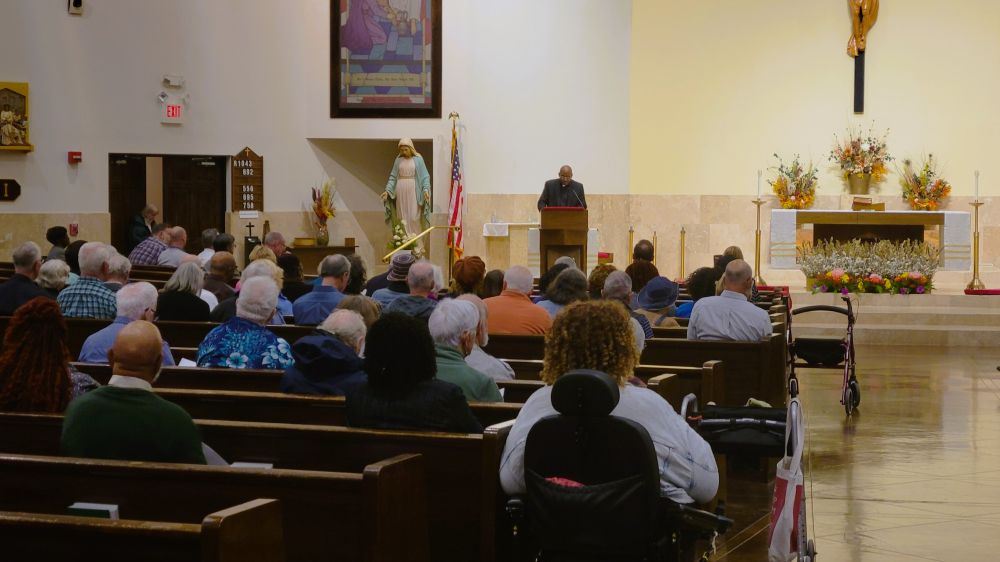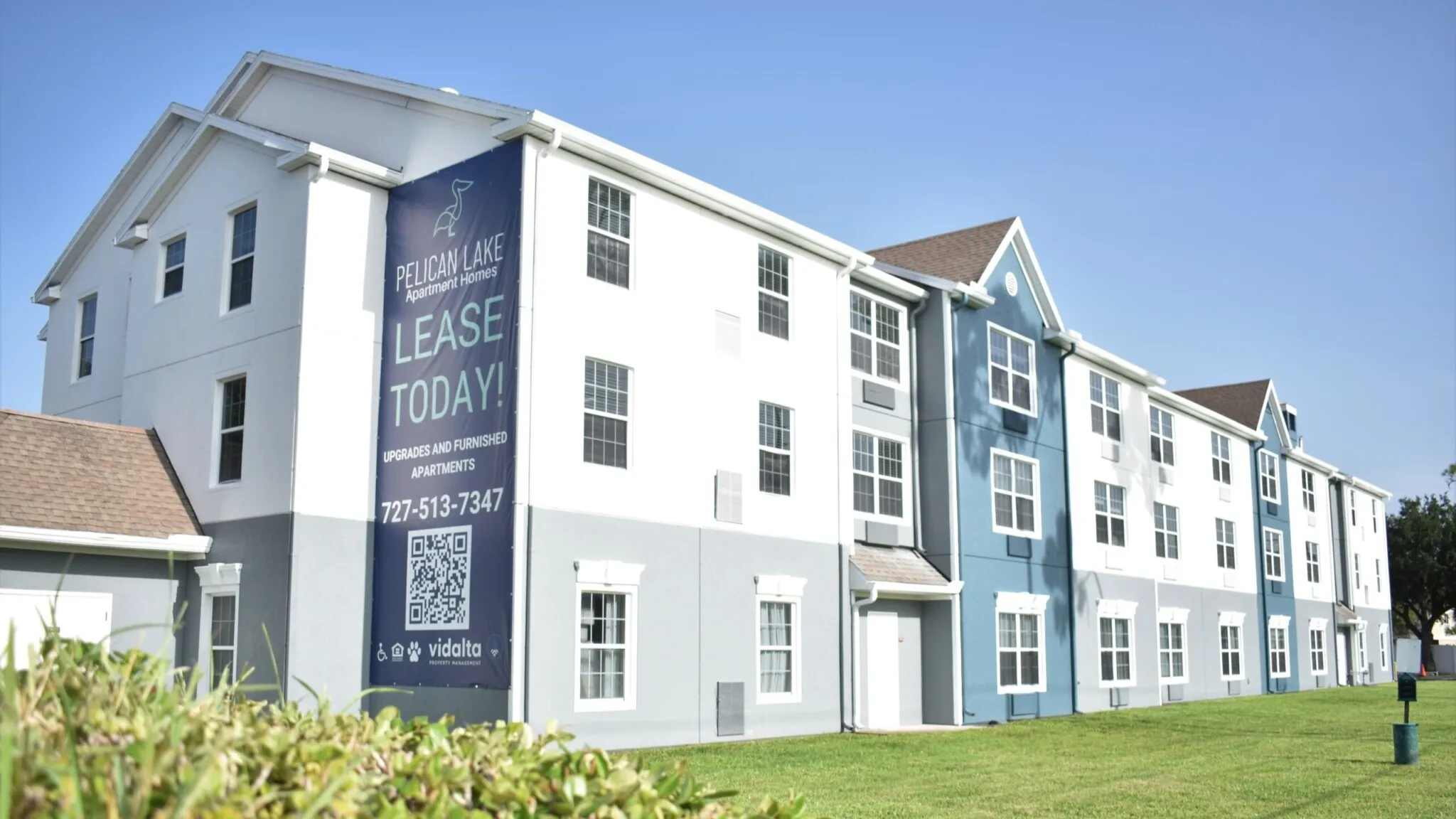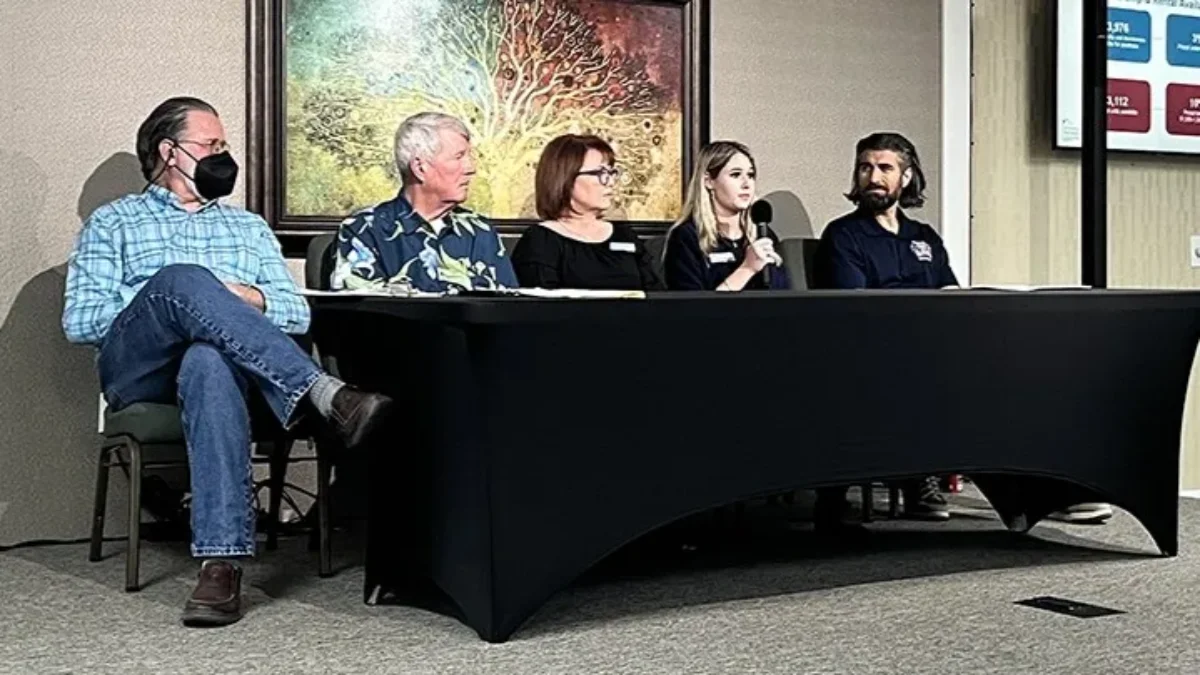Jacksonville officials are joining a local faith-based group to revive an affordable housing trust fund in an attempt to keep people from becoming homeless.
The city will work with the Interfaith Coalition for Action, Reconciliation and Empowerment — known as ICARE — to provide incentives to increase affordable multifamily rental units.
More than 200 members of ICARE’s Community Problems Assembly met with the city’s affordable housing director Monday night to kick off the cooperation.
They discussed several possibilities for funding the effort, including new fees on developers, but specifics still must be nailed down.
That initiative between ICARE and the city comes a year after City Council’s Finance Committee removed $10 million for affordable housing from Mayor Donna Deegan’s proposed 2024-25 budget proposal. The money would have provided seed money for the trust fund. If it had been approved, that fund could have resulted in a 3-to-1 match from philanthropies and set up a $40 million fund to provide financial gap loans for affordable housing.
So now, public support for affordable housing options is vital, said Joshua Hicks, the city’s affordable housing director, who spoke to ICARE at Christ the King Catholic Church in Arlington.
“If the people can continue to speak up on this issue, I think it’s paramount because we need the voices to recognize, and we need the council to recognize, that we have an affordability crisis,” Hicks said. “Rents are still sky high … now’s the time to take advantage of the moment to address housing.”
ICARE and affordable housing
ICARE is made up of 38 congregations that lobby the city’s elected officials to find solutions to problems like crime and homelessness.
ICARE addressed the issue of affordable housing with Deegan in April, at ICARE’s 27th annual Nehemiah Action Assembly at Abyssinia Missionary Baptist Church.
At the time, ICARE officials said 1 in 4 Jacksonville residents who rent homes spend half or more of their income on housing. They also say that Jacksonville has only half of the affordable homes needed for those families. So their proposal for the mayor was to push for an affordable housing trust fund.
While there, Deegan discussed the $10 million affordable housing seed fund she first proposed in 2024, which would set up a public-private partnership to assist developers like nonprofit Ability Housing acquire local property so they could erect affordable rental housing.
Deegan said 50% of Jacksonville’s renters and 22% of homeowners spend more than 50% of their income on housing. That means they do not have enough to spend on other necessities like food and transportation, she said.
When City Council’s Finance Committee removed the item from the mayor’s proposed budget, committee members said the city should not be dipping into reserve funds to pay for proposals that included the affordable housing program.
Now ICARE has announced a new partnership with Deegan and the city to reestablish an affordable housing trust fund, after the group held 50 listening sessions recently across Jacksonville.
“We heard about people living in cars and motels, adults moving in with parents, and homeless shelters being filled to capacity every night,” ICARE reported at Monday’s assembly. “In the past five years, the average rent has increased by 34% in Jacksonville. In half of ZIP codes, average rent went up by 40 to 50%. We all know that average wages haven’t increased that much. Right now, a two-bedroom apartment in Jacksonville costs somewhere between $1,400 to $1,600 per month.”

The question of whether to pay rent or buy food is an even more crucial decision for some families now that SNAP benefits were frozen as of Saturday due to the federal government shutdown, Hicks said. The Trump administration says it will restart the national food aid program using money from a Department of Agriculture contingency fund but will pay out only half the amount participants would normally receive.
“People were already struggling,” Hicks said Monday. “We already knew there was an issue. If you are cost-burdened, how are you going to be able to afford that car, energy bill or food on the table, or your health care? You are putting it all into your rent or mortgage.”
ICARE’s goal is to push for ways to establish a trust fund that becomes “a dedicated source of funding used to build, develop and preserve affordable housing.” That city-managed trust fund would be fed by recurring fees and additional city investments, city officials said. And ICARE has stated that over 850 similar affordable housing trust funds are set up in other cities, generating $3 billion for affordable homes.
Hicks pointed to programs the city has implemented that would keep costs down for low-income people, like down payment assistance for mortgages and the Emergency Rental Assistance Program,
to ensure people can afford their rent “when they have a bad month.”
But Hicks also pointed to a proposed $10 million, five-year homelessness prevention program that would have paid for the cost of adding beds to shelters and transitional housing. City Council cut that amount to $2.5 million a year ago.
“We are going to keep trying next year,” Hicks said. City Hall is looking again at reviving a home down payment assistance program, he said.
He also pointed to the $3 million now set aside as the city’s investment in a Jacksonville Affordable Housing Fund in an amendment approved in June in legislation filed by City Council member Joe Carlucci. The fund was launched last year by the Jessie Ball DuPont Fund, the Community Foundation for Northeast Florida and Northern Trust Company to provide gap financing for local affordable housing projects.
“We are also looking at the trust fund. Over the next few months you are going to hear some ways to fund it,” Hicks said. “We are looking at recurring funding measures that are already in place at the city that would just require us to direct funding to the trust fund. And we talked with developers about maybe a density fee.”
The city is also looking at instituting an express permitting fee — a week versus a few months — so developers can begin building apartments faster, “because time is money,” Hicks said. Many developers have said they would pay the fee, he said.
For more information on ICARE, go to icarejax.org.







